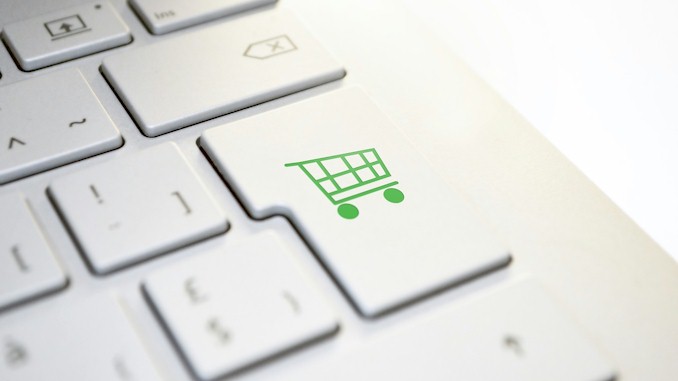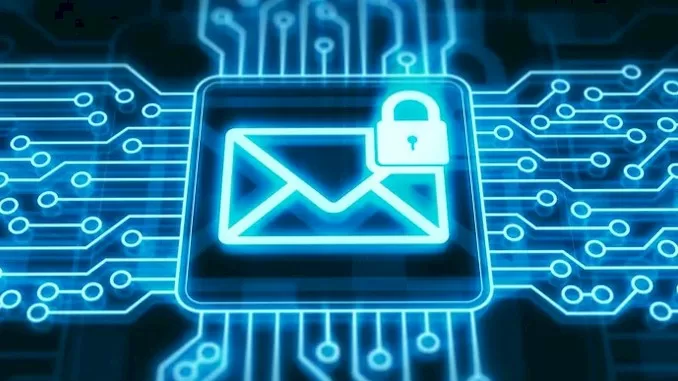Secrets Unveiled: Pay Anonymously Online
Ever wondered if there’s a way to make online payments without leaving a digital trail? Well, I’ve got some good news for you! Today, I’m going to share my personal journey of discovery on how to pay anonymously online. It all started when I needed to make a purchase online but wanted to keep my identity private. I searched high and low, trying to find a solution that would allow me to stay incognito while still completing my transaction. After some trial and error, I finally stumbled upon a method that worked like a charm. So, if you’re ready to dive into the world of anonymous online payments, buckle up because I’m about to reveal the answer that will make your digital transactions as discreet as can be!
Anonymous online payments refer to the process of making financial transactions on the internet without revealing one’s true identity. It involves utilizing various tools and techniques to mask personal information and maintain privacy. By employing methods such as virtual private networks (VPNs), anonymous browsers, and cryptocurrencies like Bitcoin, individuals can pay for goods and services online without leaving a traceable digital footprint. These measures help protect sensitive information and provide a level of anonymity in the digital realm.
Now, I’ll delve deeper into the specific tools and strategies you can use to pay anonymously online. We’ll explore the benefits and limitations of each method, ensuring you have a comprehensive understanding of how to safeguard your privacy while conducting transactions on the web. Whether you’re concerned about protecting your financial information or simply value the peace of mind that anonymity provides, this guide will equip you with the knowledge you need to navigate the online world with confidence. So, keep reading to unlock a wealth of valuable information and take control of your online privacy like never before!
Understanding Anonymous Online Payments
In today’s digital age, where online transactions have become a routine part of our lives, the need for privacy and anonymity has gained significant importance. Understanding anonymous online payments is crucial for those who value their personal information and seek to protect it from prying eyes.
Anonymous online payments refer to methods that allow individuals to make financial transactions on the internet without disclosing their true identity. This can be particularly useful for those who value privacy, wish to safeguard their financial information, or simply prefer to keep their online activities discreet.
When it comes to anonymous online payments, it’s essential to grasp the underlying principles and tools involved. The concept revolves around masking personal information, such as name, address, and financial details, to prevent them from being linked to the transaction. By doing so, individuals can maintain their privacy and reduce the risk of their data falling into the wrong hands.
One commonly used method for anonymous online payments is the utilization of virtual private networks (VPNs). A VPN creates a secure, encrypted connection between the user’s device and the internet, effectively shielding their online activities from prying eyes. By routing internet traffic through a remote server and assigning a different IP address, VPNs offer an additional layer of anonymity. This makes it challenging for third parties, including websites and online platforms, to track and identify the user’s real identity.
Another approach to anonymous online payments involves using specialized browsers designed to prioritize user privacy. These anonymous browsers, such as Tor (The Onion Router), route internet traffic through a network of volunteer-operated servers, making it difficult to trace the user’s online activities back to their original IP address. By encrypting and redirecting traffic through multiple layers, these browsers provide enhanced anonymity and protect against surveillance and data collection.
In recent years, the rise of cryptocurrencies, such as Bitcoin, has opened up new avenues for anonymous online payments. Cryptocurrencies operate on decentralized networks, enabling users to conduct transactions without revealing their identities. While not entirely anonymous, cryptocurrencies provide a certain level of pseudonymity, as transactions are recorded on a public blockchain but associated with unique wallet addresses rather than personal information.
Understanding the nuances and advantages of these methods is crucial to harnessing the power of anonymous online payments effectively. By familiarizing yourself with the available tools and their functionalities, you can take control of your online privacy and protect your sensitive information from unwanted exposure.
I’m going to show you an example of how to use an anonymous payment to make a transaction; in that way, you will get an intuitive idea of how to do it in your daily life, and then we will delve into each method in greater detail, exploring their benefits, limitations, and best practices for ensuring a secure and anonymous online payment experience.
So, let’s dive deeper into the world of anonymous online payments and equip ourselves with the knowledge to navigate the digital realm with confidence.
How to Use Gift Cards to Pay Anonymously Online
Gift cards are plastic or digital cards that contain a certain amount of money that can be used at specific stores or platforms. Gift cards can be bought with cash or other payment methods at physical locations or online. Gift cards can offer a high level of anonymity, as they do not require any personal information or verification to use them. Gift cards can also help you avoid fees, taxes, or exchange rates that may apply to other payment methods.
However, gift cards are not very widely accepted online. Only some online merchants or platforms support gift cards as a payment method, and usually only for specific brands or categories. Therefore, you need to find the right gift card and use it correctly to pay anonymously online.
Here are the steps to use gift cards to pay anonymously online:
Step 1: Buy a gift card with cash or another anonymous payment method
The first step is to buy a gift card with cash or another anonymous payment method at a physical location or online. You should look for a gift card that is accepted by the online merchant or platform that you want to pay. You should also look for a gift card that does not have any fees, limits, or expiration dates that can affect its usability and anonymity.
Some examples of gift cards that are widely accepted online are:
- Amazon
- Walmart eGift Card
- Target GiftCards
- Best Buy Blue Gift Card
- iTunes
- Google Play
To buy a gift card anonymously, you need to:
- Find a physical location or an online store that sells the gift card that you want and that does not require any verification, registration, or identification.
- Pay for the gift card with cash or another anonymous payment method, such as cryptocurrencies, prepaid cards, or disposable cards.
- Receive your gift card in your email or on your device.
Step 2: Use a VPN or Tor to hide your IP address
The second step is to use a VPN (Virtual Private Network) or Tor (The Onion Router) to hide your IP address when you use your gift card online. Your IP address is a unique identifier that reveals your location and device on the internet. Your IP address can be tracked or monitored by anyone who can access your internet traffic, such as your ISP (Internet Service Provider), government, or hackers.
To use a VPN or Tor, you need to:
- Download and install a VPN app or Tor Browser on your device.
- Choose a server location that suits your needs and connect to it.
- Browse the internet as usual with your VPN or Tor on.
Step 3: Use the gift card to pay anonymously online
The third step is to use the gift card to pay anonymously online. You can use the gift card as you would use any other payment method online. You just need to enter the gift card number, the PIN, or the code that are printed on the card or sent to your email. You may also need to enter an email address or a name that matches the gift card. You can use any fake email address or name that you want, as long as they are valid and consistent.
You should use the gift card only for purchasing services and not products. This is because products may require shipping information that can compromise your anonymity. You should also use the gift card only for one-time purchases and not for recurring subscriptions or memberships. This is because subscriptions or memberships may require verification or authorization that can compromise your anonymity.
You should also keep track of your balance and transactions on the gift card. You can do this by checking the website of the gift card provider using your gift card number, PIN, or code. You should also check if there are any fees, limits, or expiration dates that apply to your gift card. You should avoid exceeding your balance or reaching your limit or expiration date, as this may prevent you from using your gift card online.
Step 4: Dispose of the gift card and the fake email address
The fourth step is to dispose of the gift card and the fake email address after you have used them online. You should destroy the physical card by cutting it into pieces or burning it. You should also delete any emails or messages that are related to your gift card from your fake email address. You should also close your account on the gift card provider’s website using your fake email address and code.
See, you have to go through a specific path to ensure that you make an anonymous transaction. This is the price you have to pay for your privacy and anonymity.
Tools and Techniques for Anonymity
When it comes to achieving anonymity in online payments, there are various tools and techniques at your disposal. By utilizing these tools effectively, you can enhance your privacy and protect your personal information from prying eyes. Let’s explore some of the key tools and techniques that can help you achieve anonymity in your online transactions.
- Virtual Private Networks (VPNs): A VPN is a powerful tool that encrypts your internet traffic and routes it through a remote server, effectively masking your IP address and making it difficult for others to track your online activities. When choosing a VPN, opt for one that doesn’t keep logs of your browsing history or personal information, ensuring maximum privacy. Additionally, consider selecting a server location in a country with strong data protection laws for an added layer of security.
- Anonymous Browsers: Anonymous browsers, such as Tor, are designed to protect your privacy by routing your internet traffic through multiple servers, making it nearly impossible to trace back to your original IP address. These browsers use encryption and anonymization techniques to provide a high level of privacy. However, it’s important to note that while Tor enhances your anonymity, it may slow down your browsing speed due to the multiple server hops involved.
- Disposable Email Addresses: When making online payments, it’s common to be required to provide an email address. To maintain anonymity, consider using disposable email addresses. These temporary email accounts allow you to receive messages without revealing your real email address. Websites like Guerrilla Mail and Temp Mail offer temporary email addresses that self-destruct after a certain period, ensuring your privacy.
- Prepaid Cards: Prepaid cards can be a useful tool for anonymous online payments. These cards are not linked to your personal bank account and can be purchased with cash, ensuring that no personal information is associated with the transaction. Virtual prepaid cards, offered by various payment providers, can also be used for online purchases without revealing your identity.
- Cryptocurrencies: Cryptocurrencies, such as Bitcoin, offer a decentralized and pseudonymous way to make online payments. By using cryptocurrency wallets and unique wallet addresses, you can send and receive funds without revealing personal information. However, it’s important to note that while cryptocurrencies provide a certain level of anonymity, transaction details can still be traced on the public blockchain.
- Privacy-Oriented Payment Services: Several payment services prioritize user privacy and offer anonymous payment options. These services often use encryption and anonymization techniques to protect your personal information. Examples include services like Paysafecard and Blur, which allow you to make payments online without disclosing sensitive details.
By utilizing a combination of these tools and techniques, you can enhance your anonymity and protect your privacy while making online payments. It’s important to remember that achieving complete anonymity may not always be possible, as various factors and vulnerabilities can impact your privacy. However, by implementing these measures, you can significantly reduce the risk of your personal information falling into the wrong hands. So, take control of your online privacy and make your online transactions more secure with these powerful tools and techniques.
Exploring Virtual Private Networks (VPNs)
Virtual Private Networks (VPNs) play a crucial role in achieving online anonymity and protecting your privacy. Let’s dive deeper into how VPNs work and explore their benefits, limitations, and best practices for ensuring a secure and anonymous online experience.
How VPNs Work
A VPN establishes a secure, encrypted connection between your device and a remote server. When you connect to the internet through a VPN, your internet traffic is routed through this server, effectively hiding your IP address and making it difficult for third parties to track your online activities. This encryption ensures that even if your data is intercepted, it remains unreadable and secure.
Benefits of Using VPNs
- Enhanced Privacy: By masking your IP address and encrypting your internet traffic, VPNs provide an additional layer of privacy, making it challenging for websites, advertisers, and even your internet service provider (ISP) to monitor your online activities.
- Public Wi-Fi Security: VPNs are particularly useful when connecting to public Wi-Fi networks. These networks are often vulnerable to hackers and eavesdroppers, but using a VPN ensures that your data remains encrypted and protected.
- Access to Geo-Restricted Content: VPNs can also help bypass geographical restrictions by allowing you to connect to servers in different locations. This enables you to access region-specific content, such as streaming services or websites that may be blocked in your country.
Choosing the Right VPN
When selecting a VPN, consider the following factors:
- No-Logs Policy: Opt for a VPN that has a strict no-logs policy, meaning they don’t collect or store any information about your online activities.
- Strong Encryption: Look for VPNs that use robust encryption protocols, such as AES-256, which ensures your data remains secure.
- Server Locations: The number and diversity of server locations offered by a VPN are important, as they provide options for different geographical regions and can impact connection speeds.
- Kill Switch: A kill switch is a crucial feature that disconnects your internet if the VPN connection drops, preventing your data from being exposed.
Limitations and Considerations
While VPNs offer numerous benefits, it’s important to be aware of their limitations:
- VPN Speed: Depending on various factors like server load and distance, using a VPN can sometimes result in reduced internet speeds. Choosing a VPN with a large server network and optimized connections can help mitigate this issue.
- Trustworthiness: Not all VPN providers prioritize user privacy and security. It’s crucial to do thorough research and choose a reputable VPN that has a proven track record in protecting user data.
- Anonymity vs. Identifying Factors: While VPNs provide anonymity by masking your IP address, it’s important to remember that other identifying factors, such as browser fingerprinting or login credentials, can still be used to track your activities.
Best Practices for VPN Usage
To ensure a secure and anonymous online experience with a VPN, consider the following tips:
- Keep Software Updated: Regularly update your VPN software to ensure you have the latest security patches and features.
- Enable the Kill Switch: Always enable the kill switch feature to prevent accidental exposure of your data if the VPN connection drops.
- Use Secure Protocols: When setting up your VPN, choose the most secure protocol available, such as OpenVPN or IKEv2.
- Choose Servers Wisely: Connect to VPN servers in locations that offer strong data protection laws and are far from your actual physical location for maximum privacy.
When you understand how VPNs working, their benefits, limitations, and best practices for usage, you can leverage these powerful tools to enhance your online privacy and achieve a greater level of anonymity. Remember to choose a reputable VPN provider and follow recommended security practices to ensure a secure and seamless online experience.
The Power of Anonymous Browsers
In the quest for online anonymity, anonymous browsers offer a powerful tool to safeguard your privacy and protect your digital footprint. These specialized browsers, such as Tor (The Onion Router), employ unique techniques to ensure a high level of anonymity. Let’s explore the features, benefits, and considerations of anonymous browsers to understand their power in maintaining online privacy.
How Anonymous Browsers Work
Anonymous browsers operate by routing your internet traffic through a network of volunteer-operated servers, encrypting and redirecting it through multiple layers. This process, known as onion routing, makes it extremely difficult for anyone to trace your online activities back to your original IP address. By bouncing your data through different servers and encrypting it at each step, anonymous browsers provide a strong shield against surveillance and tracking.
Benefits of Using Anonymous Browsers
- Anonymity: Anonymous browsers prioritize user privacy and ensure that your online activities remain confidential and untraceable. They prevent websites, internet service providers (ISPs), and other entities from identifying your true IP address and tracking your online behavior.
- Protection against Tracking: Anonymous browsers block various tracking mechanisms employed by websites and advertisers, such as cookies and trackers, further enhancing your privacy.
- Access to Censored Content: Anonymous browsers can help bypass censorship and access content that may be restricted or blocked in certain regions. By connecting to servers in different countries, you can circumvent geographical restrictions and enjoy unrestricted access to information.
The Tor Browser
The Tor Browser is one of the most popular and widely used anonymous browsers. It is based on the Tor network and provides a high level of anonymity and privacy. The Tor network consists of thousands of volunteer-run servers known as relays, which collectively help in anonymizing your internet traffic. The Tor Browser not only hides your IP address but also encrypts your data and routes it through multiple relays, ensuring a strong layer of anonymity.
Limitations and Considerations
While anonymous browsers offer significant privacy advantages, it’s important to consider their limitations:
- Connection Speed: Due to the multiple server hops and encryption involved, anonymous browsing can be slower compared to regular browsing. This trade-off is necessary to ensure a higher level of privacy.
- Incompatibility with Some Websites: Certain websites may employ strict security measures or block access to anonymous browser users. This can limit functionality or prevent access altogether.
- User Responsibility: Anonymous browsers provide tools for privacy, but user behavior and best practices also play a crucial role in maintaining anonymity. It’s important to avoid sharing personally identifiable information or engaging in activities that could compromise privacy while using anonymous browsers.
Best Practices for Anonymous Browsing
To make the most of anonymous browsers, consider the following best practices:
- Keep the Browser Updated: Regularly update your anonymous browser to ensure you have the latest security patches and features.
- Enable Security Settings: Take advantage of built-in security features offered by anonymous browsers, such as disabling JavaScript and blocking third-party cookies.
- Avoid File Downloads: To minimize potential risks, it’s advisable to avoid downloading files or opening attachments while using an anonymous browser.
- Combine with VPN: For enhanced privacy, consider using an anonymous browser in combination with a VPN. This adds an extra layer of encryption and protects your IP address from the VPN server.
Anonymous browsers provide a powerful means to reclaim your online privacy and maintain anonymity while browsing the internet. By understanding their functionality, benefits, limitations, and best practices, you can harness the power of these tools to protect your personal information and ensure a secure online experience. Remember to exercise caution, adopt good browsing habits, and stay informed about the latest advancements in anonymous browsing technologies.
Cryptocurrencies: A Path to Privacy
Cryptocurrencies have emerged as a popular means of achieving privacy and anonymity in online transactions. By leveraging the decentralized nature of blockchain technology, cryptocurrencies offer individuals a pseudonymous way to conduct financial transactions without revealing their personal information. Let’s delve into the world of cryptocurrencies and explore how they can be used to enhance privacy in online payments.
Pseudonymity vs. Anonymity
Cryptocurrencies provide a level of pseudonymity, meaning that transactions are associated with unique wallet addresses rather than personal identities. While the wallet addresses are not directly linked to real-world identities, it’s important to note that transaction details can still be traced on the public blockchain. Achieving complete anonymity requires additional measures, such as using mixing services or privacy-focused cryptocurrencies.
Privacy-Focused Cryptocurrencies
Several cryptocurrencies are designed with privacy as a primary objective. These privacy-focused coins employ various techniques to enhance anonymity and unlink transactions from wallet addresses. Examples include Monero (XMR), Zcash (ZEC), and Dash (DASH), which offer features like ring signatures, zk-SNARKs, or PrivateSend to obfuscate transaction details and provide greater privacy.
Wallet Addresses and Transactions
In cryptocurrency transactions, wallet addresses play a crucial role. These addresses are a string of alphanumeric characters associated with a specific cryptocurrency wallet. Wallet addresses are generated randomly and are not directly linked to personal identities. By using different wallet addresses for each transaction, users can help maintain privacy and make it more difficult to trace their financial activities.
Mixing Services
Mixing services, also known as tumblers or mixers, are tools that enhance privacy in cryptocurrency transactions. These services mix multiple users’ funds together, making it challenging to trace the origin of individual transactions. By obscuring the transaction trail, mixing services can help break the link between wallet addresses and increase privacy.
Best Practices for Privacy in Cryptocurrency Transactions
To maximize privacy when using cryptocurrencies, consider the following best practices:
- Use Privacy-Focused Cryptocurrencies: Opt for cryptocurrencies specifically designed with privacy features, as they offer stronger anonymity compared to traditional cryptocurrencies like Bitcoin.
- Utilize Wallets with Built-in Privacy Features: Select cryptocurrency wallets that provide advanced privacy features, such as support for multiple wallet addresses and the ability to connect to privacy networks like Tor.
- Practice Address Reuse Prevention: Avoid reusing wallet addresses for different transactions, as this can potentially link your activities and compromise privacy.
- Stay Informed: Stay updated on the latest developments in privacy-enhancing technologies within the cryptocurrency space, as new tools and techniques are continuously being developed to enhance privacy.
Considerations and Challenges
While cryptocurrencies offer a path to privacy, it’s important to be aware of potential challenges and considerations:
- Regulatory Compliance: Privacy-focused cryptocurrencies may face regulatory scrutiny in certain jurisdictions due to concerns about potential misuse. It’s essential to be aware of the legal implications and comply with relevant regulations.
- Wallet Security: While cryptocurrencies offer privacy benefits, securing your wallet and private keys is crucial. Without proper security measures, the risk of unauthorized access or theft increases.
- Traceability: While individual transactions may be difficult to trace directly to real-world identities, other factors, such as exchanges or external services, can introduce potential vulnerabilities that could compromise privacy.
Cryptocurrencies present a unique opportunity to enhance privacy and anonymity in online transactions. By leveraging privacy-focused coins, understanding the role of wallet addresses, utilizing mixing services, and following best practices, individuals can navigate the cryptocurrency landscape with greater confidence in protecting their personal information. It’s important to stay informed, exercise caution, and adapt to emerging privacy technologies to stay ahead in the pursuit of online financial privacy.
Benefits and Limitations of Anonymous Online Payments
Anonymous online payments offer several benefits and can be a valuable tool for protecting your privacy and personal information. However, it’s essential to be aware of their limitations and potential challenges. Let’s explore the advantages and constraints of anonymous online payments to understand their role in safeguarding your financial transactions.
Benefits of Anonymous Online Payments
- Privacy Protection: The primary benefit of anonymous online payments is the preservation of your privacy. By using anonymous payment methods, you can keep your personal information, such as credit card details or billing addresses, confidential and prevent them from being exposed to potential data breaches or misuse.
- Enhanced Security: Anonymous online payment methods often employ encryption techniques and provide an extra layer of security, minimizing the risk of financial fraud and unauthorized access to your sensitive information. This can help safeguard your funds and protect you from identity theft.
- Reduced Tracking and Targeted Advertising: Anonymous payment methods limit the ability of companies, advertisers, and third parties to track your purchasing habits and collect data for targeted advertising. By maintaining your anonymity, you can enjoy a more private and personalized online experience.
- Global Accessibility: Many anonymous payment methods are accessible worldwide, enabling individuals to make secure transactions across borders without the need for traditional banking services. This makes anonymous payments particularly valuable for those without access to traditional financial institutions or in regions with limited banking infrastructure.
Limitations and Considerations of Anonymous Online Payments
- Limited Acceptance: Anonymous payment methods may not be widely accepted by all merchants and online platforms. While their adoption is increasing, it’s important to verify if the payment method is supported before attempting to make a transaction.
- Lack of Consumer Protections: Some anonymous payment methods do not offer the same level of consumer protections, such as chargeback options or fraud protection, as traditional payment methods. This means that in case of fraudulent transactions or disputes, it may be more challenging to seek recourse or recover funds.
- Regulatory Challenges: The use of anonymous online payment methods may face regulatory scrutiny in some jurisdictions due to concerns about money laundering, fraud, or terrorist financing. It’s important to understand and comply with the legal requirements and regulations in your specific location.
- Conversion Fees and Exchange Rates: When using anonymous payment methods for international transactions, you may encounter additional fees or less favorable exchange rates. It’s crucial to consider these factors and assess the overall cost-effectiveness of the chosen payment method.
- Limited Transaction History: Anonymous payment methods may not provide detailed transaction histories or statements that can be useful for budgeting, expense tracking, or financial management purposes. This can pose challenges for individuals who rely on comprehensive records for their financial planning.
- Potential Volatility: Some anonymous payment methods, particularly those based on cryptocurrencies, can be subject to price volatility. The value of cryptocurrencies can fluctuate significantly, which may affect the overall cost or value of your transactions.
While anonymous online payments offer benefits such as privacy protection, enhanced security, and reduced tracking, it’s important to consider their limitations and potential challenges. By understanding both the advantages and constraints, you can make informed decisions about the appropriate use of anonymous payment methods and balance your privacy needs with convenience and financial considerations.
Safeguarding Your Financial Information
Protecting your financial information is crucial in an increasingly digital world. Implementing robust security measures can help safeguard your sensitive data and mitigate the risk of fraud or identity theft. Let’s explore effective strategies and best practices for securing your financial information and ensuring a safe online financial experience.
- Strong Passwords and Authentication: Creating strong, unique passwords is essential for securing your online financial accounts. Use a combination of uppercase and lowercase letters, numbers, and special characters. Avoid using easily guessable information, such as your name or birthdate. Enable two-factor authentication whenever possible to add an extra layer of security.
- Regular Software Updates: Regularly updating your operating system, web browsers, and financial apps is critical. Software updates often include security patches that address vulnerabilities and protect against emerging threats. Enable automatic updates to ensure you’re always running the latest, most secure versions.
- Secure Networks and Encryption: When accessing financial services or conducting online transactions, ensure you’re using a secure network. Avoid using public Wi-Fi networks for sensitive activities as they can be vulnerable to eavesdropping. Instead, use a trusted and encrypted network, such as your home or mobile data network, or consider using a virtual private network (VPN) for added security.
- Beware of Phishing and Scams: Be vigilant against phishing attempts and scams aimed at stealing your financial information. Avoid clicking on suspicious links or providing personal information in response to unsolicited emails or messages. Verify the legitimacy of websites and communication channels before sharing any sensitive data.
- Secure Online Payments: When making online payments, use trusted and secure payment gateways. Look for SSL encryption (https://) on the payment page to ensure your data is transmitted securely. Consider using digital wallets or reputable payment platforms that offer additional layers of security and buyer protection.
- Regularly Monitor Your Accounts: Monitor your financial accounts regularly to detect any unauthorized activity or suspicious transactions. Review your bank statements, credit card bills, and online payment histories. If you notice any discrepancies or unfamiliar transactions, report them to your financial institution immediately.
- Use Secure Backup and Storage: Back up your financial data regularly to ensure you have a copy in case of loss or theft. Use secure storage methods, such as encrypted external hard drives or cloud storage with strong encryption and multi-factor authentication.
- Keep Personal Information Private: Avoid sharing sensitive financial information unnecessarily. Be cautious about providing personal details over the phone or in response to unsolicited requests. Protect your social security number, bank account information, and credit card details, sharing them only when necessary and with trusted sources.
- Shred Financial Documents: Dispose of physical financial documents, such as bank statements and credit card statements, securely. Shred or destroy them using a cross-cut shredder to prevent unauthorized individuals from accessing your personal information.
- Regularly Check Your Credit Reports: Monitor your credit reports from the major credit bureaus to identify any unusual or unauthorized activity. By reviewing your credit history, you can detect potential fraud early and take appropriate actions to mitigate the impact.
Implementing these strategies and best practices can significantly enhance the security of your financial information. By staying vigilant, employing strong authentication methods, and adopting secure online practices, you can safeguard your financial data and enjoy peace of mind in your digital financial transactions.
Taking Control of Your Online Privacy
Taking control of your online privacy is crucial in today’s digital landscape. By implementing effective privacy measures, you can protect your personal information, limit data collection, and enhance your overall online privacy. Let’s explore actionable steps you can take to regain control of your privacy and navigate the digital world with confidence.
- Review and Adjust Privacy Settings: Regularly review the privacy settings of your online accounts and adjust them according to your preferences. Check social media platforms, search engines, and other online services to customize the information you share and limit the data collected about you. Be mindful of the permissions you grant to applications and third-party services.
- Limit Personal Information Sharing: Minimize the amount of personal information you share online. Avoid providing unnecessary details on social media profiles, public forums, or websites. Be cautious when filling out online forms and consider the potential consequences of sharing sensitive data.
- Utilize Privacy-Enhancing Browser Extensions: Install privacy-enhancing browser extensions to enhance your online privacy. These tools can block intrusive advertisements, disable tracking cookies, and provide additional security features. Popular extensions include uBlock Origin, Privacy Badger, and HTTPS Everywhere.
- Opt for Private Browsing Modes: Most web browsers offer private browsing modes, such as Chrome’s Incognito mode or Firefox’s Private Browsing. These modes prevent your browsing history, cookies, and other data from being stored on your device. Use private browsing when accessing sensitive information or using public computers.
- Employ Virtual Private Networks (VPNs): Virtual Private Networks (VPNs) create a secure and encrypted connection between your device and the internet. By routing your internet traffic through VPN servers, you can mask your IP address and protect your online activities from prying eyes. Choose reputable VPN providers and enable VPN protection when accessing the internet, especially on public Wi-Fi networks.
- Secure Your Devices and Networks: Protect your devices and home networks with strong passwords and encryption. Keep your operating systems, antivirus software, and applications up to date to safeguard against security vulnerabilities. Enable firewalls and use secure Wi-Fi networks with strong passwords to prevent unauthorized access.
- Be Cautious with Email and Communication: Exercise caution when sharing sensitive information via email or other communication channels. Be wary of phishing attempts, suspicious attachments, and unfamiliar senders. Verify the authenticity of emails and consider using encrypted email services for added privacy.
- Embrace Encryption: Utilize encryption technologies to protect your data. Encrypt sensitive files and folders on your devices using tools like BitLocker (Windows) or FileVault (Mac). For secure communication, consider using end-to-end encrypted messaging apps like Signal or WhatsApp.
- Regularly Clear Your Digital Footprint: Regularly clear your digital footprint by deleting unnecessary files, cookies, and browsing history. Use tools like CCleaner or the built-in options in your web browser to remove temporary files and clear your cache. This helps minimize the digital traces left behind and enhances your privacy.
- Stay Informed and Educate Yourself: Stay informed about the latest privacy concerns, data breaches, and emerging privacy technologies. Educate yourself on privacy best practices and be proactive in implementing them. By staying up to date, you can adapt to changing privacy landscapes and make informed decisions about your online presence.
By taking control of your online privacy through these proactive measures, you can protect your personal information, maintain your confidentiality, and assert greater control over how your data is collected and used. Empower yourself to navigate the digital realm with confidence and protect your privacy in an increasingly interconnected world.







